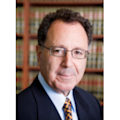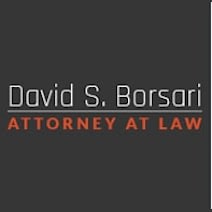Top Newport Beach, CA Child Pornography Lawyers Near You
SoCal Super Lawyers 16 years in a row, AV rated. Criminal defense attorney offering experience, skill and personal attention.
Se Habla Español
Free Consultation
When Results Matter Most, Put 42 Years of Criminal Defense to Work For You! Open 24/7. Free Consultation.
Se Habla Español
Free Consultation
Virtual Appointments
Arrested? Or Think You May be Arrested? Call David. Interviewed by NBC & Dr Drew for his Criminal Defense Success.
Free Consultation
260 St. Ann's Drive, Laguna Beach, CA 92651
Clients who need legal help with Child Pornography concerns can contact Law Offices of Barry T. Simons, a reputable law firm in Newport Beach, California.
Se Habla Español
Free Consultation
6345 Balboa Blvd, Suite 247, Encino, CA 91316
If you need Child Pornography help in California, contact Law Office of Gregory Rubel, a local practice in Newport Beach, for legal representation.
Free Consultation
16520 Bake Parkway, Suite 280, Irvine, CA 92618
Representing people in Newport Beach, California with their Child Pornography issues.
Se Habla Español
Free Consultation
1440 N Harbor Blvd, Suite 900, Fullerton, CA 92835
Contact Law Offices of David Borsari for experienced Child Pornography guidance in Newport Beach, California.
Free Consultation
23679 Calabasas Road, Suite 412, Calabasas, CA 91302
Assisting people in California with their Child Pornography needs. Learn More.
Se Habla Español
Free Consultation
5440 Trabuco Rd, Irvine, CA 92620
PO Box 3313, Granada Hills, CA 91394
355 S Grand Ave, Suite 2850, Los Angeles, CA 90071
19800 MacArthur Blvd, Suite 300, Irvine, CA 92612
555 South Flower Street, 31st Floor, Los Angeles, CA 90071
575 Anton Blvd, Suite 750, Costa Mesa, CA 92626
2049 Century Park E, Suite 3500S, Los Angeles, CA 90067
6464 West Sunset Blvd., Suite 1030, Los Angeles, CA 90028
206A East Mission Boulevard, Pomona, CA 91766
4350 Von Karman Ave, 4th FL, Newport Beach, CA 92660
1300 Bristol St. N., Suite 100, Newport Beach, CA 92660
20955 Pathfinder Road, Suite 100, Diamond Bar, CA 91765
1055 West 7th Street, 33rd Floor, Los Angeles, CA 90017
3700 Wilshire Blvd, Suite 950, Los Angeles, CA 90010
24811 Alicia Parkway, Suite E-#351, Laguna Hills, CA 92653
1010 Wilshire Blvd, Ste.1415, Los Angeles, CA 90017
633 W 5th St., 28th Floor, Suite 2874, Los Angeles, CA 90071
3460 Ocean View Blvd, Suite F, Glendale, CA 91208
6131 Orangethorpe Ave, Suite 370, Buena Park, CA 90620
1400 N. Harbor Blvd., Suite 601, Fullerton, CA 92835
Newport Beach Child Pornography Information
Lead Counsel independently verifies Child Pornography attorneys in Newport Beach and checks their standing with California bar associations.
Our Verification Process and Criteria
Ample Experience
Attorneys must meet stringent qualifications and prove they practice in the area of law they’re verified in.Good Standing
Be in good standing with their bar associations and maintain a clean disciplinary record.Annual Review
Submit to an annual review to retain their Lead Counsel Verified status.Client Commitment
Pledge to follow the highest quality client service and ethical standards.
What Is Considered Child Pornography?
Under federal law, child pornography is defined as any visual depiction of sexually explicit conduct involving a minor (someone under the age of 18). Sexually explicit conduct means actual or simulated:
- Sexual intercourse
- Bestiality
- Masturbation
- Sadistic or masochistic abuse
- Lascivious exhibition of the genitals or pubic area
Child pornography may also include images or videos of child sexual abuse. In the past, pornography generally involved videos or photos. However, visual depictions of sexual activity may take many other forms, including any undeveloped film, data stored on a computer disk, data capable of conversion into visual imagery, peer-to-peer file sharing, or computer-generated child porn images.
Laws against child pornography make it a crime to be involved in the material in any way, including:
- Possession
- Receiving
- Trading and distribution
- Reproduction
- Production
- Solicitation
What Are the Elements of Child Pornography Charges?
When someone is accused of possession of child pornography, the prosecutor has the burden of proof to prove every element of the criminal charges beyond a reasonable doubt. The elements vary by jurisdiction but generally include the prosecutor proving the defendant knowingly possessed or controlled material containing a visual depiction of a minor involved in sexually explicit conduct.
What Are the Penalties for Child Pornography in California?
Child pornography is a form of child exploitation. The courts take sexual exploitation of a child charges very seriously. There are harsh penalties for possession, distribution, or receipt of child porn material, even if the individual was not involved in direct abuse. In general, any child pornography charge is a felony. Penalties depend on a number of factors, including the amount of material involved, age of the victim, participation in abuse, and prior child pornography convictions.
For example, under federal child pornography laws, a first-time offender convicted of production of child pornography can face a minimum of 15-year prison sentence. A second offense is punishable by imprisonment from 25 years to 50 years. A third conviction includes a maximum of life in federal prison.
When a judge uses sentencing guidelines, they may take into account a number of factors. Aggravating factors can involve harsher penalties, up to the maximum sentence. Aggravating factors in child pornography cases may include:
- Explicit depictions of a minor under the age of 12
- Distribution of material to a minor
- Sadistic, masochistic, or violent depictions
- Number of images of child pornography
Will I Have to Register as a Sex Offender in California?
After release from imprisonment or serving out probation, someone convicted of possession or distribution of child pornography may have to register as a sex offender. Mandatory sex offender registration is a continuing obligation to notify and update law enforcement agencies annually and whenever the offender moves. Depending on the child pornography offense and the state, registration may be a lifetime duty. Failure to register or moving without notifying law enforcement may result in criminal charges.
Sex offender registration is generally publicly available. Most states have a searchable website where individuals can search for a registered sex offender by name or location. The online sex offender registry generally includes the offender’s:
- Name
- Photograph
- Age
- Criminal offense
- Identifying information
Do I Need a Lawyer If I Am Facing Charges for Child Pornography?
With such serious criminal penalties involved in sex crimes, you may want to contact an experienced criminal defense lawyer for advice. A child pornography lawyer will be able to explain your legal options, evaluate every viable defense, and can challenge the prosecutor’s evidence. After formal charges are filed, your options are generally to plead guilty or take your case to court. Skilled attorneys can also help you negotiate a plea agreement to reduce the charges, try and get the minimum sentence, or have some charges dismissed. Talk to a defense attorney about your strongest defense options.
Are There Legal Defenses to Child Pornography Charges?
When law enforcement agencies conduct a law enforcement investigation, their evidence may only consist of the evidence of pornographic materials on someone’s computer or an IP address using file-sharing programs to exchange digital images. They may not have direct evidence that the defendant accessed or shared the information. It may be an effective defense to show the computer was shared with a roommate or others. Other common defense strategies may include:
- Wireless router was not secured and accessible to others
- Defendant did not know a shared file contained illegal images
- Images were artistic depictions with serious artistic, political, or scientific value
- Individual portrayed was 18 years old or older at the time
Was the Search of My Computer Legal?
Law enforcement cannot just search anyone’s computer for illegal material. Generally, the police need to have search warrants to conduct a search of computers, homes, vehicles, or other private areas. However, there may be several exceptions where the police do not need a warrant, including when the owner gives consent to search.
If the police conducted an unlawful search, it may be a violation of your constitutional rights against unreasonable search and seizure. Your attorney may be able to file a motion to suppress any unlawfully obtained evidence to keep it out of court. Without evidence of child pornography, the prosecutor may not have a strong enough case to move forward.







